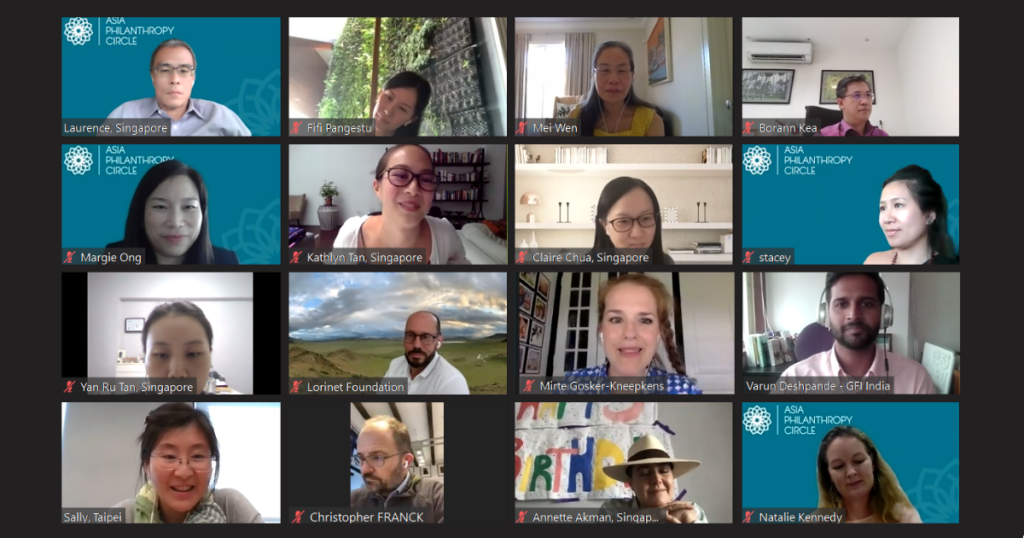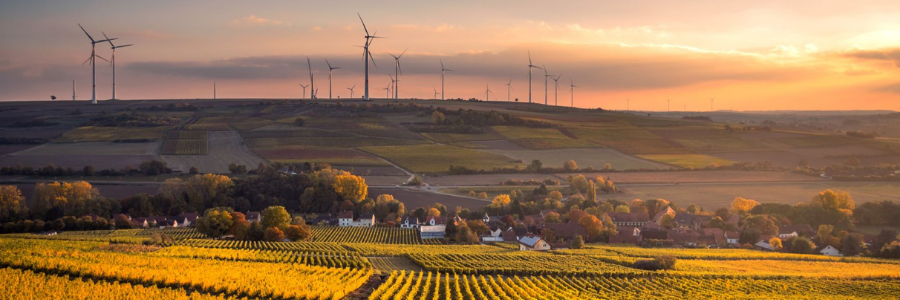BY MIRA NADARAJAH
As the COVID-19 pandemic took over the public consciousness in 2020, it was easy to lose sight of persisting and pertinent global issues such as climate change and environmental degradation. As such, we thought it fit to bring sustainability back into focus with APC’s first call for collaboration event of the year.
In this third installment of the series, which allows APC members to share organisations and projects they are passionate about, Kathlyn Tan and Pierre Lorinet shared their own work in environment and sustainability initiatives and invited the Good Food Institute (GFI) and Nexus for Development respectively to present their unique efforts with fellow members. The session proved to be an enlightening deep dive into the earth’s most pressing challenges and innovative approaches to solving them.

Pierre-Louis Vie and Clarisse Kehler Siebert shared how Nexus for Development provides access to finance in developing economies across Asia to increase sustainable energy and water resource development, advances low-carbon solutions, and scales local implementers. Their Pioneer Facility, which was launched in 2017 to bridge the missing middle for start-ups reaching a growth stage in the sustainable energy and clean water sectors. The Pioneer Facility is an innovative fund that provides scale-up capital, via working capital or capex loans to enterprises that offer sustainable energy and clean water solutions to underserved populations in Southeast Asia.
As one of the early investors in the Pioneer Facility, Pierre recounted being immediately interested in its value proposition—a business model which targets both climate change and poverty alleviation, while providing returns to investors. The fund also aligned with the Lorinet Foundation’s mission to support pioneering, impactful, and sustainable initiatives promoting access to clean water and energy for vulnerable communities in Southeast Asia.
In her overview of GFI, Kathlyn highlighted how alternative proteins have been in the headlines recently, in part due to Bill Gates’ new book How to Avoid A Climate Disaster hailing the development of alternative proteins as critical to the fight against climate change. She shared her belief that alternative proteins are the necessary response to managing our impact on the planet: greenhouse gas emissions, land and water use, pollution, ocean dead zones, loss of biodiversity. To that end, Kathlyn shared her current work with GFI as part of her climate action strategy; specifically, her research to address overfishing and supporting an ecosystem of alternative sustainable seafood.
Managing Director of GFI India, Varun Deshpande highlighted the urgent need for alternative proteins, and how the sourcing of proteins like meat, egg and dairy from animals and seafood is the common denominator in issues of public health, food security and environmental degradation.
To that end, GFI functions as an enabler, working across business, science and policy to provide systems, tools and food products to create meat, eggs and dairy alternatives from plants, or cultivated directly from cells. For instance, GFI identifies and directly funds (through philanthropy) pivotal research topics in the alternative protein space. The international network of non-profit organisations also works with partners to launch coursework, train the next generation of talent, and build centers of research.
For members who are interested to learn more, do reach out to the APC team and we will be happy to make the connection.

